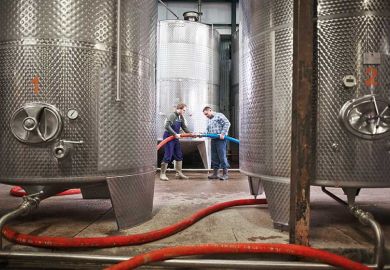Never before have I found it so easy to explain to people the importance of knowledge exchange by universities.
The Covid-19 pandemic requires the UK to marshal all its resources, and our universities, as key national institutions, are rising to the challenge. Across the UK, they have played a critical role in developing vaccines, providing epidemiological expertise, studying human behaviour and overcoming the engineering challenge of increasing the availability of ventilators, hand sanitiser and masks, among other things. Universities have worked with each other, as well as the government and companies large and small, to maximise the benefits of their research expertise at a time of need.
University of Oxford researchers are already recruiting volunteers for a Covid-19 vaccine clinical trial, while researchers at UCL have worked with Mercedes to develop and rapidly manufacture new breathing aids that are already being used in hospitals. Many universities have provided personal protective equipment and are supporting their local NHS Trusts. Skills, too, are essential, with medical students hurrying from the classroom to the bedside in record time and clinical researchers returning full-time to the clinic.
Although many of our normal activities have been curtailed, this is the backdrop against which we must consider the new Knowledge Exchange Concordat, which is launched today. The enormous contribution that universities make to the well-being of our society and economy is increasingly well understood, but we can always improve. Universities now have the opportunity, as never before, to consider and explain their unique approach to knowledge exchange, driven by their own place and mission, and to set out a programme for increasing their effectiveness further.
The eight principles of the concordat will be familiar to anyone who has worked in knowledge exchange, and the list of suggested enablers are drawn from the experience of a wide variety of practitioners. An institution ought to be clear which activities it should (or should not) be prioritising, and which enablers it should (and should not) be using. This will be a consequence of good strategic thinking and effective implementation, rather than just managing yet another submission.
The concordat does not stand alone, but rather complements the recently announced Knowledge Exchange Framework (KEF). While the KEF is a retrospective, metric-based, summative exercise, the concordat is a formative exercise, allowing institutions to assess their mechanisms for delivering knowledge exchange and outline their plans for the future. This will instil additional confidence in the government and other funders of university research and teaching that mechanisms are in place to deliver ever increasing value to society and the economy from that investment.
This is important, not in any way to constrain universities to some utilitarian philosophy, but to ensure that mechanisms are in place to take the outputs from research and teaching and deliver outcomes for society. Universities are all different, produce very distinct outputs and have very different opportunities to deliver relevant outcomes.
A particularly pressing need is for universities to recognise their role as anchors of their local economies and communities. Levelling up (and avoiding levelling down) was recognised as being crucially important even before Covid-19, and so universities’ ability to reflect on the role that they play in their communities will be an increasingly important part of their knowledge exchange activity.
Knowledge exchange is a broad church, with continued evolution in good practice. Initiatives such as Research England’s Connecting Capability Fund and organisations such as PraxisAuril, the professional association for knowledge exchange practitioners, continue to increase the exchange of good practice between institutions. The Knowledge Exchange Concordat should help us all get better, faster. We know now how important this is.
Phil Clare is deputy director of research services at the University of Oxford.
Register to continue
Why register?
- Registration is free and only takes a moment
- Once registered, you can read 3 articles a month
- Sign up for our newsletter
Subscribe
Or subscribe for unlimited access to:
- Unlimited access to news, views, insights & reviews
- Digital editions
- Digital access to THE’s university and college rankings analysis
Already registered or a current subscriber?









